New Scientist covers the latest developments in science and technology that will impact your world. New Scientist employs and commissions the best writers in their fields from all over the world. Our editorial team provide cutting-edge news, award-winning features and reports, written in concise and clear language that puts discoveries and advances in the context of everyday life today and in the future.
Elsewhere on New Scientist
Flight of fantasy • Imagination isn’t mere childhood whimsy – harnessing its power can benefit us all
New Scientist
3D printing reaches new heights
Is this the end of the multiverse? • The multiverse is derived from a particular interpretation of quantum mechanics, but now a new twist on a classic experiment says it is time to put the idea to bed, finds Alex Wilkins
Colossal scientist now admits they haven’t really made dire wolves
Ancient temples may have been schools for celestial navigation
We assume women are morally superior to men
China eyes ambitious space mission • Two very different space rocks – an asteroid and a comet – will be visited by a single probe
How giant ground sloths evolved – then went extinct
Physicists battle over dark energy • The bombshell finding that dark energy may weaken over time shook physics last month. Now other physicists are challenging this view, finds Alex Wilkins
Piles of penguin poo help keep Antarctica cool
Are microplastics in ultra-processed foods harming your mental health? A bold proposal links two of the biggest health issues of our times, but is it correct, asks Carissa Wong
US military eyes world’s largest plane
Teeth may have come from ancient fish skin
Bees have a power line problem • Airborne electric fields seem to have a dramatic effect on honeybee foraging
Contact lenses let you see infrared light even in the dark
AI doesn’t understand the word ‘no’ • The inability of AI models to recognise negation words could limit their medical applications
Why birds decorate their nests with foreign objects
Weird planet is orbiting backwards between two stars
Meeting 1.5°C temperature target won’t stop sea level rise
Do phones harm teens? Who knows • A “consensus statement” on the effects of smartphone use among adolescents has been accused of failing to actually reach a consensus based in evidence, finds Chris Stokel-Walker
Astronomers double down on claim of strongest evidence for alien life
Stimulating vagus nerve could help spinal cord injuries
The science of violence • We need to learn from an ingenious study in the Stockholm subway and radically change policies around violent crime, says Jens Ludwig
This changes everything • Storms ahead New AI models are set to revolutionise weather prediction. But as our climate becomes more extreme, we need to ensure broad public access to their forecasts, says Annalee Newitz
Saintly serpents
Time for bed • Can anthropology and biology help babies sleep better? A new book has some fascinating insights but is somewhat impractical, says Penny Sarchet
Our dark materials • Extracting Earth’s resources is a rich story shot through with awe, power, greed and hubris, finds Adam Weymouth
New Scientist recommends
The TV column • Inner circle Murderbot fans will be thrilled to learn that the cyborg security unit that gains free will by hacking its governor module is now the star of a compelling adaptation. Bethan Ackerley has unexpectedly joined their ranks
Your letters
THE WORLD INSIDE YOUR HEAD
WHERE DOES IMAGINATION COME FROM?
THE EVOLUTION OF OUR MIND’S EYE
HOW YOUR IMAGINATION CHANGES AS YOU AGE
INSIDE THE DIFFERENT...

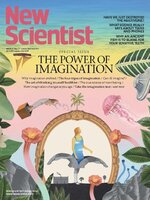 May 31 2025
May 31 2025
 May 24 2025
May 24 2025
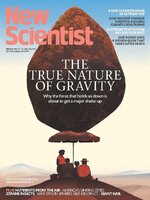 May 17 2025
May 17 2025
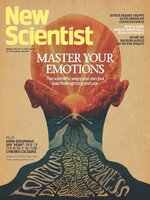 May 10 2025
May 10 2025
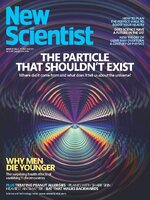 May 03 2025
May 03 2025
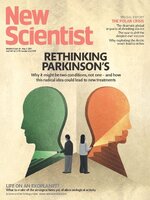 Apr 26 2025
Apr 26 2025
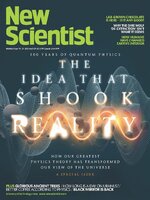 Apr 19 2025
Apr 19 2025
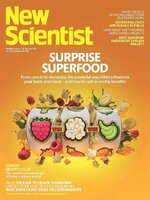 Apr 12 2025
Apr 12 2025
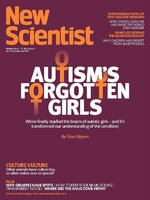 Apr 05 2025
Apr 05 2025
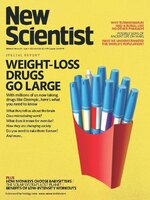 Mar 29 2025
Mar 29 2025
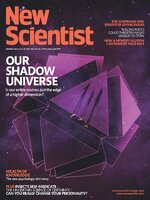 Mar 22 2025
Mar 22 2025
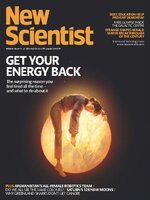 Mar 15 2025
Mar 15 2025
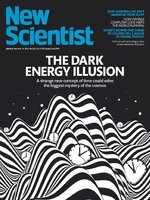 Mar 08 2025
Mar 08 2025
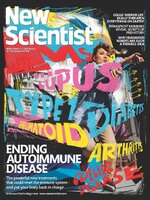 Mar 01 2025
Mar 01 2025
 Feb 22 2025
Feb 22 2025
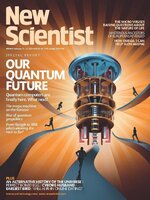 Feb 15 2025
Feb 15 2025
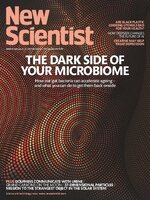 Feb 08 2025
Feb 08 2025
 Feb 01 2025
Feb 01 2025
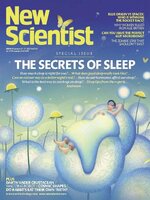 Jan 25 2025
Jan 25 2025
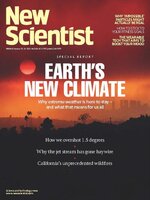 Jan 18 2025
Jan 18 2025
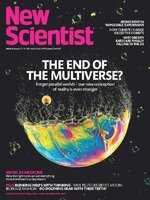 Jan 11 2025
Jan 11 2025
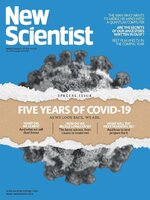 Jan 04 2025
Jan 04 2025
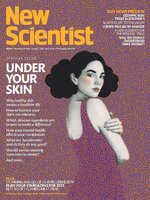 Dec 28 2024
Dec 28 2024
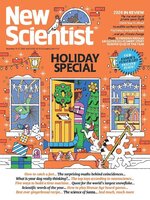 Dec 14 2024
Dec 14 2024